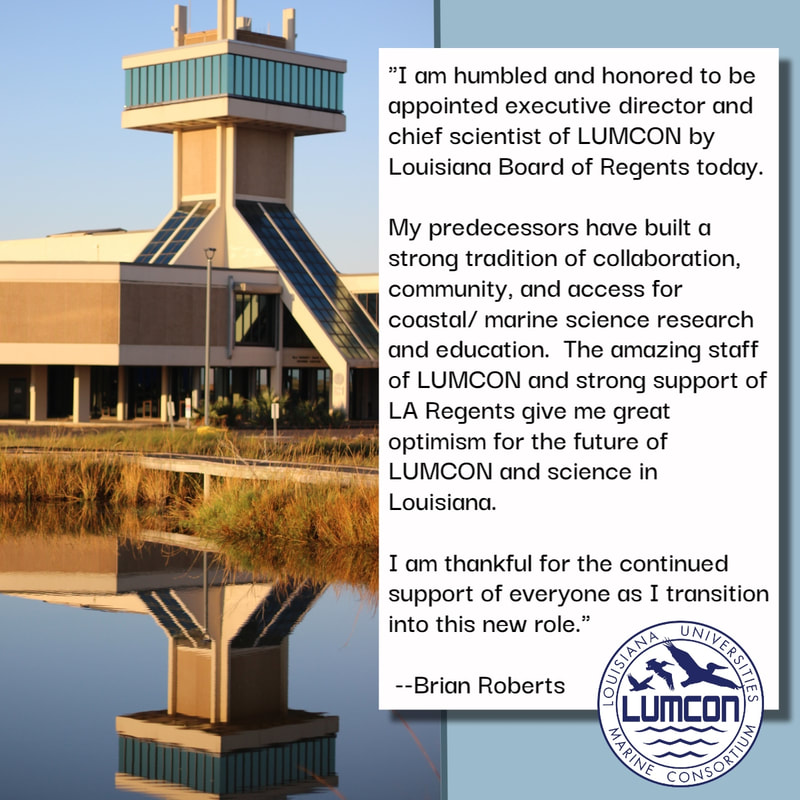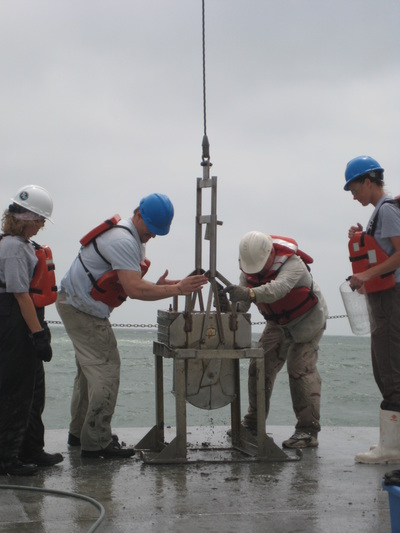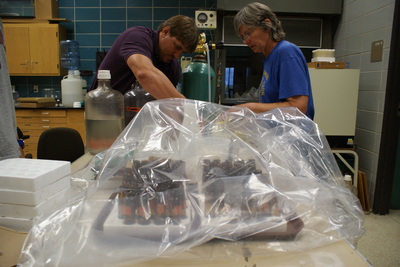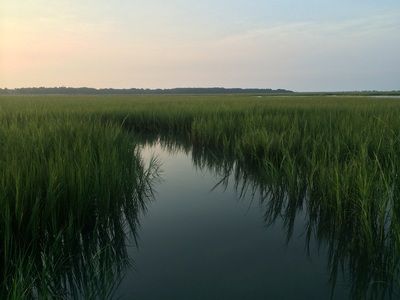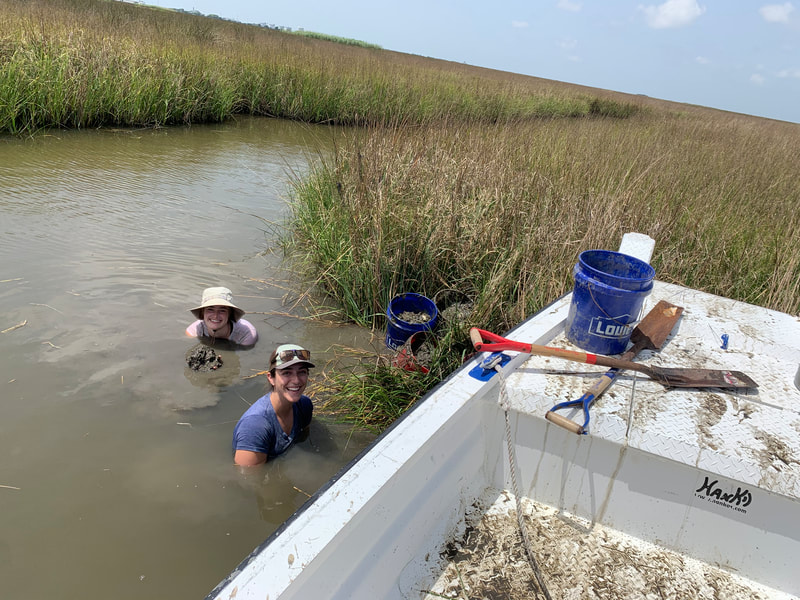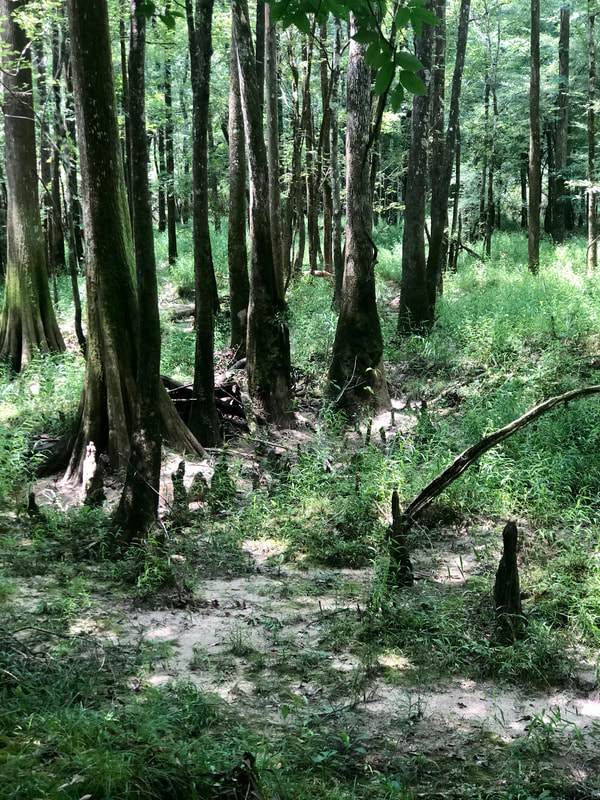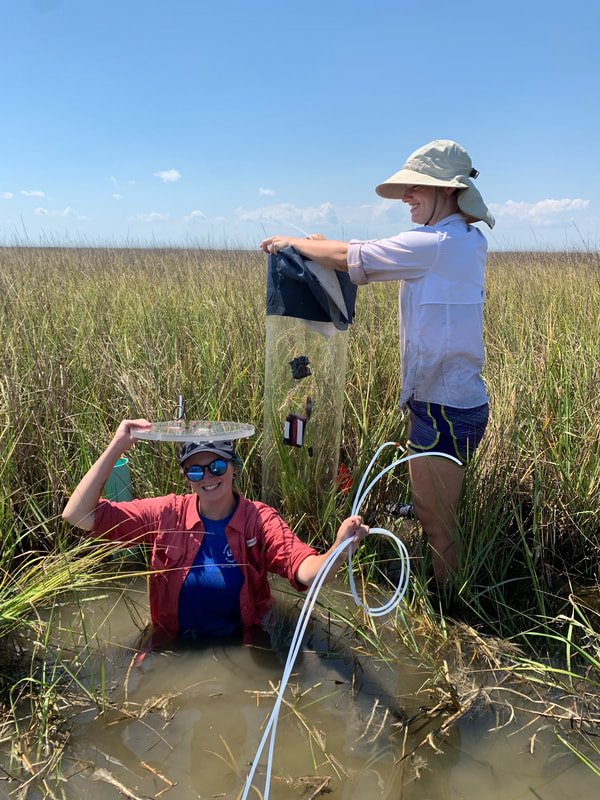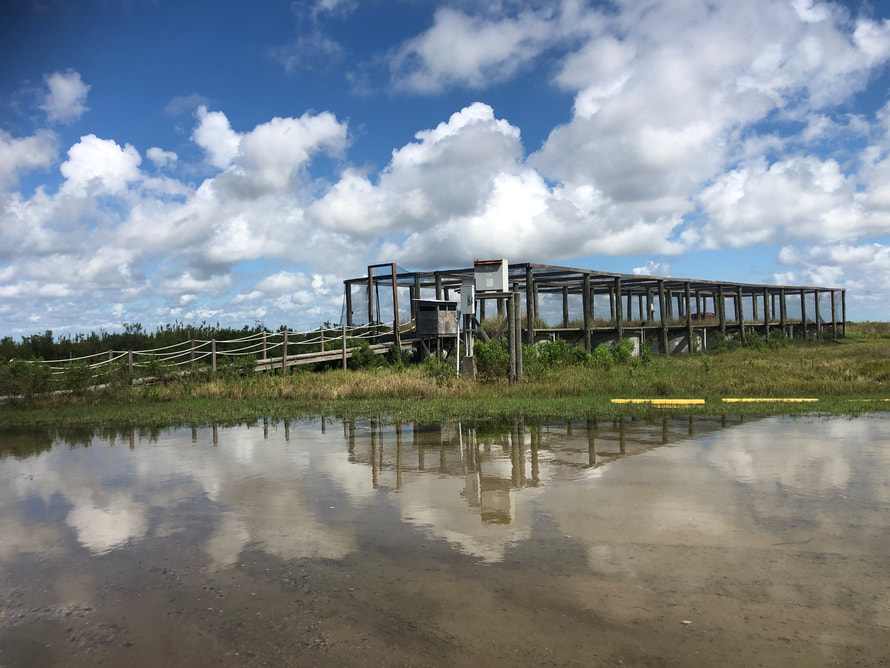Welcome to LUMCON's Ecosystem Ecology and Biogeochemistry Lab!
The Roberts Lab is interested in understanding how ecosystems transform and retain nutrients and energy. We are particularly interested in examining how the mechanisms regulating the autotrophic/heterotrophic balance and the biogeochemical cycling and transport of materials along the continuum from headwater streams and lakes to large rivers, wetlands, estuaries, and open-ocean ecosystems are altered as a result of human perturbations to the landscape (e.g. land use changes, fertilizer applications, climate change, oil spills, etc.). We are also interested in examining how restoration efforts might mitigate some of these deleterious impacts.
In our work, we seek to open “the black box" of ecosystems by attempting to understand the biotic and abiotic interactions occurring within them so we can better understand the factors that regulate important biogeochemical fluxes. Specifically, we have been involved in several projects studying the influence of particular species or communities at regulating ecosystem-scale processes [e.g. studying 1) how shifts in microbial communities impact ecosystem-scale N-cycling rates and greenhouse gas fluxes in wetlands; 2) the relative contribution of autotrophs & heterotrophs to ecosystem R in lakes, streams & estuaries; and 3) the role of snails in regulating periphyton and contributing to ecosystem-scale nutrient cycling & R rates in streams].
Current research in the Roberts Lab is broadly focused in three areas: 1) ecosystem ecology and biogeochemistry (particularly focused on terrestrial-aquatic and community-ecosystem linkages along the aquatic continuum), 2) human-induced environmental impacts on aquatic ecosystems, and 3) restoration ecology. Our research team is currently involved in projects in multiple ecosystem types including headwater streams, rivers, baldcypress swamps, salt marshes, estuaries, and coastal oceans. The interdisciplinary and collaborative nature of our research lends itself to providing numerous research opportunities to students.
Follow the Roberts Lab on Twitter for updates or check out our publications to see what we've been working on.
We are recruiting a postdoc in wetland and/or coastal biogeochemistry and ecosystem ecology that is available immediately. We are recruiting a postdoc and research technician to start in January 2023 to work on a NSF Chemical Oceanography grant. We will also be recruiting a postdoc and research technician in support of a NSF Frontier Research In Earth Science (FRES) grant focused on coastal wetlands in early 2023. Finally, Dr. Jonathan Willis and I will be recruiting a MS student at Nicholls State University for a project focused on Spartina alterniflora dynamics for summer/fall 2023 enrollment. For more information, please see the Opportunities page.
